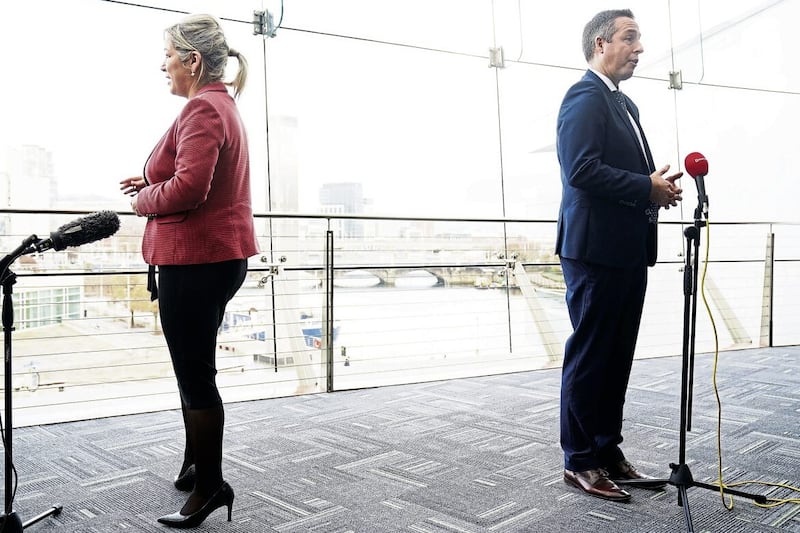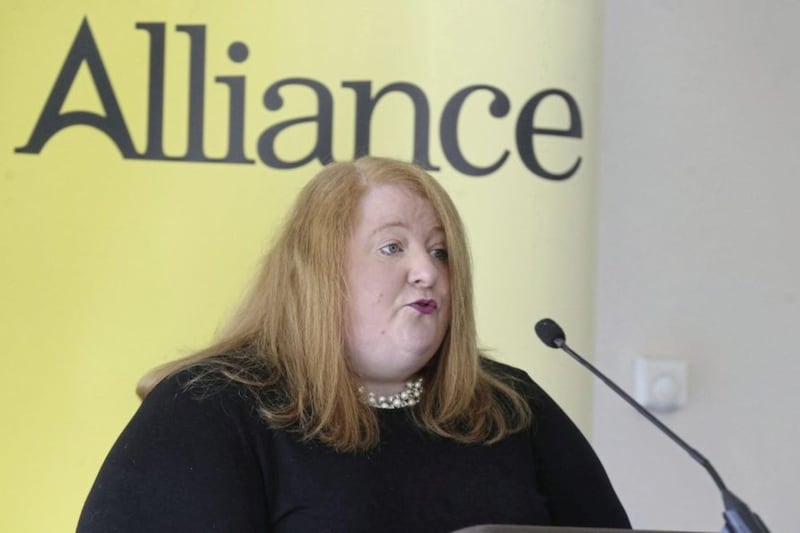Stormont's two largest parties have failed to endorse a Westminster report recommending wide-ranging reform of the Stormont institutions.
The Northern Ireland Affairs Committee's report includes a raft of proposals which MPs believe would make devolution more stable.
They include renaming the first and deputy first ministers as 'joint first ministers' and electing the assembly speaker with a two-thirds majority.
The changes to the rules around the speaker's selection would have enabled the restoration of the assembly during the DUP's current boycott of the institutions.
Sinn Féin first minister designate Michelle O'Neill declined an invitation to give evidence to the MPs' inquiry, while the two DUP representatives on the committee voted against the report.
Responding to the report's recommendations, a Sinn Féin spokesperson said 25 years on from the Good Friday Agreement it was "imperative to learn lessons around what has worked, but also what hasn’t".
"Respecting the results of last May’s election, reinstating power-sharing, and having parties assess, review and scrutinise the operation of both the assembly and executive through an all-party committee are pragmatic steps forward," the spokesperson said.
DUP MP Carla Lockhart, who sits on the committee with Jim Shannon, said the pair submitted their own minority report and had "grave concerns" about the MPs' proposals.
Read more:
- MPs' report advocates Stormont reform to stabilise devolution
- ANALYSIS: Stormont reform would rob 'big two' of key electoral asset
The DUP's manifesto for last year's assembly election said the party believes "that a voluntary coalition represents the best long-term option".
"The last 25 years couldn't have happened without inbuilt protections for both unionists and nationalists and this report is just trying to set that aside. It's trying to undermine that fact that unionism does not support what the government has done in recent months around the protocol and the Windsor Framework," Ms Lockhart told the BBC.
"We want to get back to consensus politics and we don't believe that any sweeping new ways of working should be introduced to Northern Ireland and the assembly at this time."
Alliance deputy leader Stephen Farry said opinion polls consistently showed a "groundswell of support for reform across the political spectrum".
"Reform of the institutions whilst respecting the principles and structures of the Good Friday Agreement was always envisaged. It is in the interests of everyone to see fair, stable and effective governance," he said.
"Sinn Féin are not recognising this imperative, while the DUP have consistently supported changes over the past 25 years, including during last year's assembly election, so their opposition today is self-serving and cynical."
He said reform would only happen if it was driven by UK and Irish governments.
Ulster Unionist leader Doug Beattie said his party had always argued for a "factory reset" of the Good Friday Agreement institutions.
“Any changes to the process of governing must be put before the people of Northern Ireland," he said.
“The principle of consent needs to be at the heart of any change.”
People Before Profit MLA Gerry Carroll described the report's proposals as a "sticking plaster for a fatally flawed assembly.
“These proposals are an attempt to better balance the sectarian scales without dealing with sectarianism as the root cause of the political crisis.
“The first and deputy first ministers are already on a par – titles matter very little when political leaders still represent divided communal blocs."







